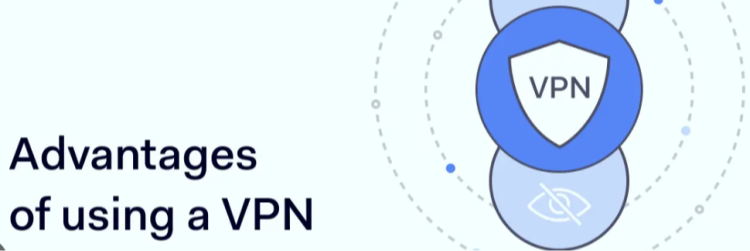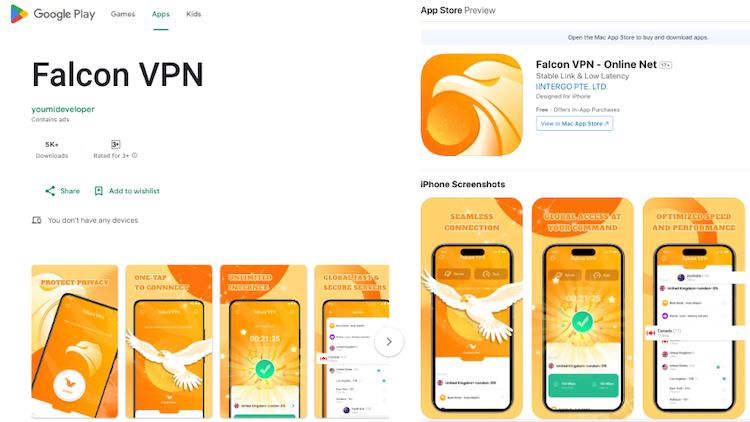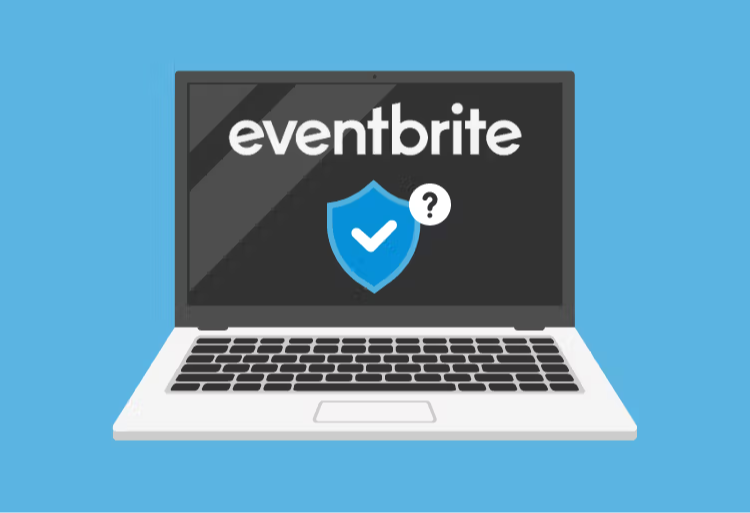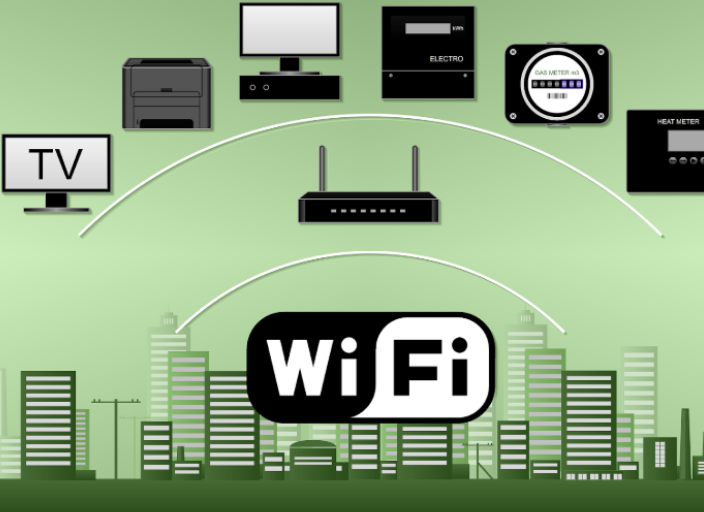Virtual Private Networks (VPNs) are no longer niche cybersecurity tools—they’re essential for both personal use and business operations. But are VPNs all pros and no cons? While the benefits of a VPN are numerous, it's important to understand their limitations too. In this guide, we’ll explore the VPN pros and cons, analyze key use cases, and help you decide whether a VPN is right for your digital life in 2025.

Why Should You Use a VPN?
A VPN (Virtual Private Network) allows you to securely connect to the internet through an encrypted tunnel. While originally built for privacy, VPNs now serve many purposes, from accessing global content to boosting security on public Wi-Fi.
🔐 1. Enhanced Online Privacy
Using a VPN hides your IP address and location, preventing websites, advertisers, and ISPs from tracking your browsing habits. This feature is critical if you want to maintain anonymity and avoid targeted ads or data profiling.
🛡️ 2. Stronger Security on Any Network
VPNs encrypt your internet traffic, shielding sensitive data from hackers—especially on public Wi-Fi. Whether you're entering passwords or accessing your bank, VPN encryption keeps you safe from cyber threats.
🌍 3. Access Geo-Blocked Content
Can't stream your favorite show while abroad? VPNs let you change your virtual location by connecting to servers in other countries, unlocking access to content like Netflix, Hulu, and YouTube libraries worldwide.
🚀 4. Bypass Bandwidth Throttling
Internet service providers often slow your speed if they detect gaming, torrenting, or video streaming. A VPN masks your activity, helping you avoid ISP throttling for smoother performance.
🌐 5. Break Through Censorship
In countries with restricted internet access, a VPN allows you to bypass firewalls and access blocked websites like Google, Facebook, or WhatsApp. This is essential for users in censored or surveillance-heavy regions.
Exploring the Benefits of a VPN in Detail
Let’s break down how VPNs improve daily internet use—whether you're at home, traveling, gaming, or running a business.
🔍 Hide Your IP and Browsing Activity
One of the core benefits of a VPN is its encryption. VPNs scramble your data, making it unreadable to hackers or even your ISP. This is especially important if you're concerned about online tracking, cyberstalking, or data leaks.
☕ Stay Secure on Public Wi-Fi
Hackers often exploit open Wi-Fi hotspots in cafes, airports, and hotels. Using a VPN ensures your traffic is encrypted and private—even on unsecured networks. Free tools like Falcon VPN for Android can help mobile users stay protected on the go.
✈️ Travel Without Digital Borders
VPNs let you access home services and bypass geo-restrictions while traveling. Whether it's logging into your banking app or watching your region-locked content, a VPN like Falcon VPN ensures uninterrupted access anywhere in the world.
💸 Save Money While Shopping Online
Many websites adjust pricing based on your IP location. By changing your virtual region, you can unlock better deals on flights, hotel bookings, or streaming subscriptions. VPNs help bypass price discrimination, putting more savings in your pocket.
🛍️ Shop Online Safely
When shopping online, especially over public Wi-Fi, your credit card data can be intercepted. A VPN encrypts these transactions for extra protection—even if the e-commerce site isn’t fully secure.
🎮 Stop Throttling and Prevent DDoS Attacks
Gamers can use VPNs to reduce lag caused by ISP throttling. Plus, a hidden IP address protects against DDoS attacks, which are common in online gaming communities. Services like Falcon VPN provide fast, secure protocols ideal for gaming.
🕵️ Protect Journalists and Activists
For users in high-risk regions—like journalists or NGO workers—a VPN provides crucial protection. Tools like Falcon VPN offer free VPN access for non-profits, ensuring secure communication and information sharing in restrictive environments.
Advanced Features with Premium VPNs
While free VPNs offer basic protection, premium services unlock additional features that improve both safety and convenience:
-
Malware Protection: Blocks access to malicious websites.
-
Ad Blocking: Reduces trackers and pop-ups.
-
Anti-Phishing: Detects fraudulent websites to avoid scams.
-
Tracker Blocking: Prevents third-party data collection.
-
Virus Scanning: Identifies and removes malicious files.
💡 Try Free VPN - Falcon VPN to explore these features risk-free.
Try Falcon VPN for a effortless VPN Experience
Selecting the right VPN comes down to identifying your priorities. Focus on providers with strong encryption standards, no-log policies, and a diverse range of server locations. User reviews are an excellent way to evaluate reliability and customer support. Platforms like Falcon VPN also allow you to try their services risk-free, ensuring compatibility with your needs before committing. If you’re wondering about the pros and cons of VPNs or need step-by-step assistance, explore our guide on how to set up VPN on router for deeper insights.
How to get started:

- Get the VPN App
Head over to FalconVPN and download the appropriate version for your device. - Complete Installation
Open the downloaded file and follow the prompts to install the VPN app on your device. - Open the VPN App
Launch the app after installation. Select your preferred server location. - Connect to Secure Your Internet
Hit the “Connect” button to encrypt your connection and protect your online activities.
Pros and Cons of VPN in 2025
✅ VPN Pros
-
Encrypts internet traffic
-
Hides IP address and location
-
Bypasses geo-restrictions and censorship
-
Prevents tracking and targeted ads
-
Secures public Wi-Fi connections
-
Reduces bandwidth throttling
-
Helps avoid price discrimination
-
Adds protection against DDoS attacks
❌ VPN Cons
Even though the benefits of a VPN are significant, it’s important to know the limitations:
🐢 Slower Connection Speeds
Encryption and remote server routing can reduce your internet speed. However, premium services like Falcon VPN use optimized protocols (e.g., FalconLynx) to maintain fast performance.
🔓 Some VPNs Are Unsafe
Free VPNs often log user data, display ads, or offer weak encryption. Always choose a provider with a no-logs policy and robust infrastructure.
💰 Subscription Costs
Premium VPNs come with a monthly or annual fee. While this can be a downside, the enhanced features and security justify the investment for most users.
🚫 Legal Restrictions
VPN use is banned or restricted in some countries (like China, Russia, and Iran). Always check local laws before using one while traveling or working abroad.
📱 Device Compatibility
While most platforms support VPNs, smart devices like TVs or gaming consoles might require VPN setup via a router.
🔍 VPNs Can’t Block Voluntary Data Sharing
VPNs don’t stop you from voluntarily sharing your data on Google, Facebook, or other platforms. Use them alongside privacy-conscious habits for full protection.
Business Benefits of VPNs
VPNs aren’t just for personal use—they’re essential for modern businesses.
🧑💼 Endpoint Protection for Remote Teams
VPNs encrypt all devices connected to your corporate network. This prevents data breaches, even if employees are using public or home Wi-Fi.
📈 Scalable Security
As teams grow, so does the risk. VPNs like Falcon allow quick onboarding for new users, making secure scaling simple.
💼 Cost-Efficient Infrastructure
Instead of managing your own secure servers, businesses can reduce IT costs by using third-party VPN services with maintenance and support included.
Is a VPN Worth It in 2025?
Absolutely. VPNs are a smart investment for anyone who values online privacy, data protection, and unrestricted internet access. With rising cyber threats, censorship, and privacy violations, the benefits of a VPN are more critical than ever.
Whether you’re looking for a free VPN for Android -Falcon VPN, a fast gaming VPN, or a secure solution for your remote team—Falcon VPN delivers strong performance with a privacy-first approach.
Final Thoughts
When evaluating the VPN pros and cons, the scale tips heavily in favor of VPN use—especially if you choose a trusted, premium provider. While free services can offer a starting point, opting for a solution like Falcon VPN ensures you get speed, safety, and support.
📲 Ready to take control of your privacy? Try Free VPN – Falcon VPN and enjoy safer, smarter browsing today.
Frequently Asked Questions (FAQ) About VPNs in 2025
1. Does a VPN slow down my internet speed?
Yes, a VPN can slightly reduce your connection speed due to encryption and server distance. However, premium VPNs like Falcon VPN use optimized protocols (e.g., FalconLynx) to minimize speed loss, making the difference negligible for most users.
2. Can I use a VPN to access streaming services like Netflix?
Many VPNs allow you to bypass geo-blocks on platforms like Netflix, Hulu, or BBC iPlayer by connecting to servers in different countries. However, some streaming services actively block VPN traffic, so choosing a VPN with dedicated streaming servers improves success rates.
3. Are free VPNs safe to use?
While free VPNs offer basic protection, many log user data, inject ads, or provide weak encryption. For better security and privacy, consider a trusted VPN with a strict no-logs policy and transparent data practices.
4. Will a VPN protect me from hackers on public Wi-Fi?
Yes! A VPN encrypts your internet traffic, making it unreadable to hackers—even on unsecured networks like coffee shop or airport Wi-Fi. This prevents cybercriminals from stealing passwords, credit card details, or sensitive data.
5. Is using a VPN legal in my country?
VPNs are legal in most countries, but some governments restrict or ban them (e.g., China, Russia, Iran). Always check local laws before traveling or relying on a VPN for work in regulated regions.
6. Can I set up a VPN on my router or smart TV?
Yes! Many VPNs support router installation, which secures all connected devices (like smart TVs and gaming consoles). Check your VPN’s setup guides or look for providers with router-compatible apps for seamless protection.
Have more questions? Explore our VPN setup guide or try Falcon VPN to test these features firsthand. 🚀

John Miller is a tech enthusiast and online privacy advocate with over 8 years of experience in VPN and cybersecurity. He writes expert guides to help users navigate VPN options, enhance their online security, and protect their privacy on the internet.



